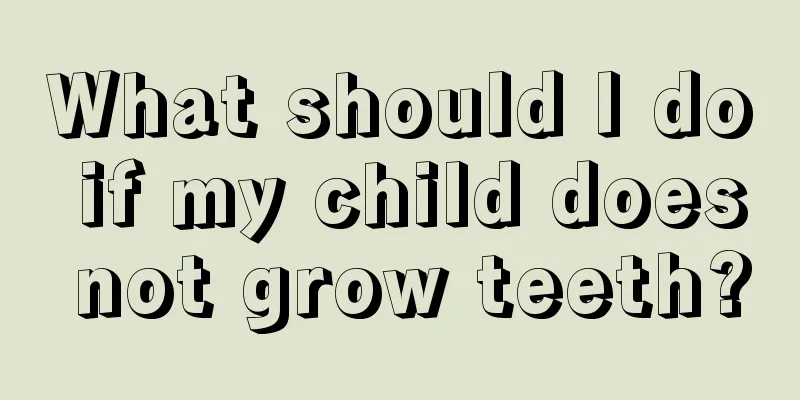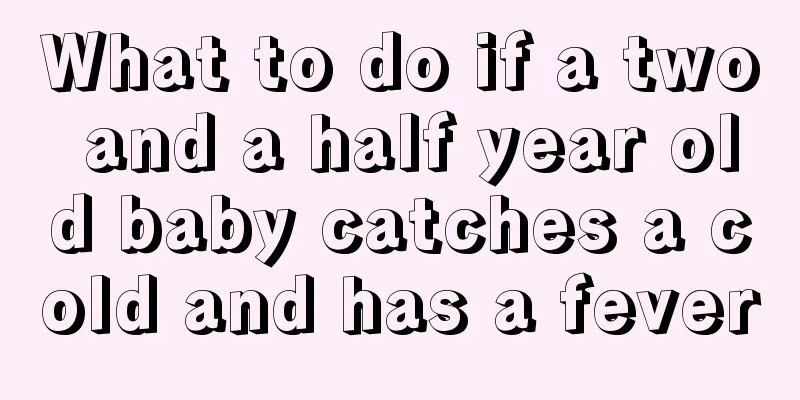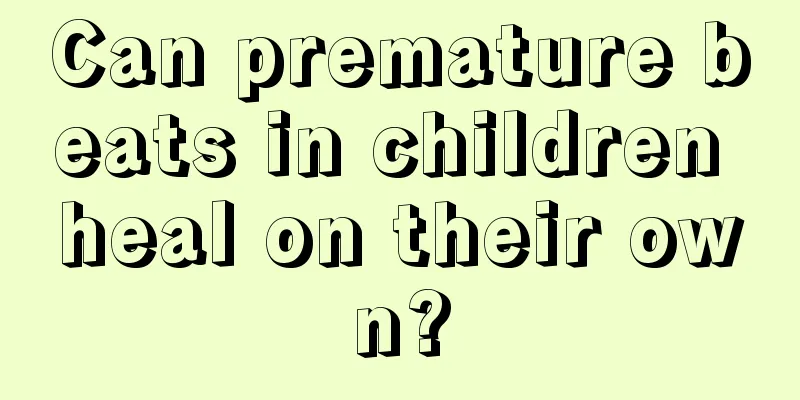What should I do if my child does not grow teeth?

|
Children will start to grow teeth when they reach a certain age, but some parents find that their children have not grown teeth yet. At this time, they should pay attention to whether it is affected by genetic factors or caused by nutritional deficiencies. They should pay attention to nutritional supplements. 1. People have two sets of teeth in their lifetime , namely deciduous teeth (20 in total) and permanent teeth (32 in total). When children are born, there are ossified deciduous tooth germs in their jaws. Under normal circumstances, the first deciduous tooth will erupt when the baby is 6 to 7 months old. Due to the influence of genetics and other factors, the eruption of baby's deciduous teeth may be early or late, with great individual differences. Therefore, we will find that some babies start to grow teeth at four months old, while others are delayed until 10 to 12 months. This is all within the normal physiological range. 2. If the baby is over one year old and still has not grown teeth, it can be considered abnormal. The main reasons are as follows: First, it is related to the baby's own nutrition and health status. If an infant suffers from systemic diseases such as malnutrition, rickets, cretinism, etc., the eruption of deciduous teeth will be delayed. Secondly, it is related to the mother’s nutritional status during pregnancy and lactation. We know that deciduous teeth begin to grow and develop during the embryonic period. If the pregnant mother is malnourished during this period, it will inevitably affect the growth and development of deciduous teeth. If the mother is poorly nourished during breastfeeding, it will also affect the baby's absorption of calcium and phosphorus, thereby delaying the baby's teething. Again, pay attention to a rare disease - congenital adontia. Children with this disease not only have missing teeth or no teeth, but also have developmental abnormalities of other organs, such as sparse hair, dry skin, and no sweat glands. Additionally, certain oral tumors may also be detrimental to tooth eruption. 3. In summary , if the child’s deciduous teeth have not erupted after ten months, parents do not need to be overly nervous. As long as the child is in good health and has no other problems, it does not matter if the first deciduous tooth comes out as late as one year old. Pay attention to feeding, add complementary foods reasonably and timely, and get more sun exposure, and your baby's teeth will grow naturally. |
<<: How do children take care of their teeth? Scientific brushing is the most important
>>: What should I do if my baby teeth are decayed?
Recommend
Teenagers leg pain knee pain
The bodies of teenagers are in the fastest period...
What causes sweating on baby's head?
For many newborns or babies, mothers will find th...
How to treat white spot disease on children's face
We all know that children's skin is delicate ...
Why does my child cough and have hot palms and soles of his feet?
Children are very prone to coughing, which is clo...
What is the development standard for babies over five months old?
The baby's development is an issue that every...
What to do if your child gets chickenpox
Chickenpox is a relatively ancient disease. It is...
What to do if your child has abdominal distension due to indigestion
Because children's intestines and stomachs ar...
What is the dosage of antelope horn powder for children?
Antelope horn powder actually has a relatively hi...
What is Peak Bone Growth?
When every child is developing bones, parents are...
Why does my baby have bad breath and grind his teeth?
Some children are very young but have bad breath....
Height of a one and a half year old child
Usually parents are very concerned about their ba...
What is the child missing if he doesn't have long hair?
After the baby is born, the baby's hair is ve...
What are the treatments for rhinitis in children?
Rhinitis, also known as sinusitis, is very common...
Why does my child always complain of leg pain?
If you find that your child complains of leg pain...
What is the massage method for children with cold and fever?
If a younger child catches a cold and has a fever...









